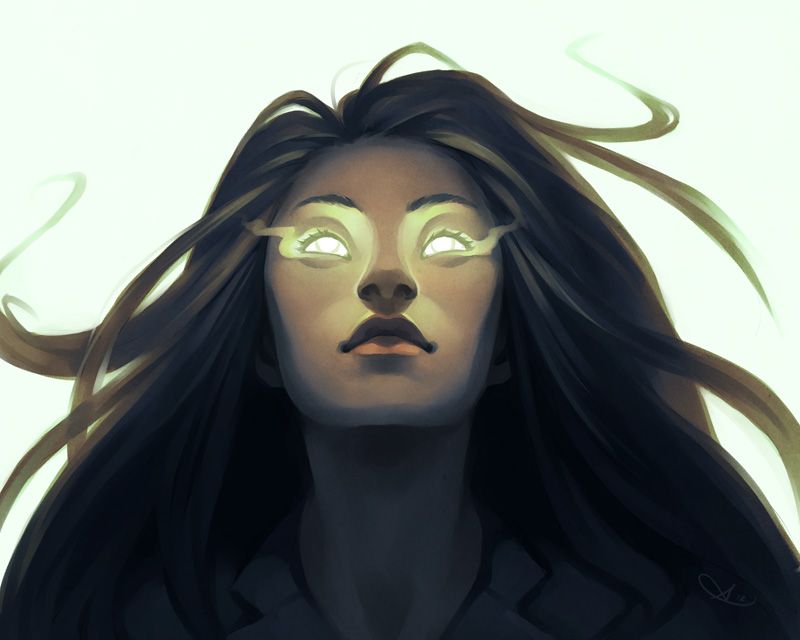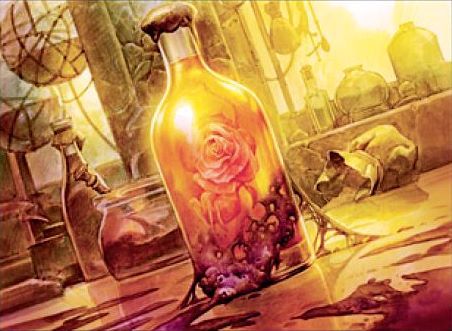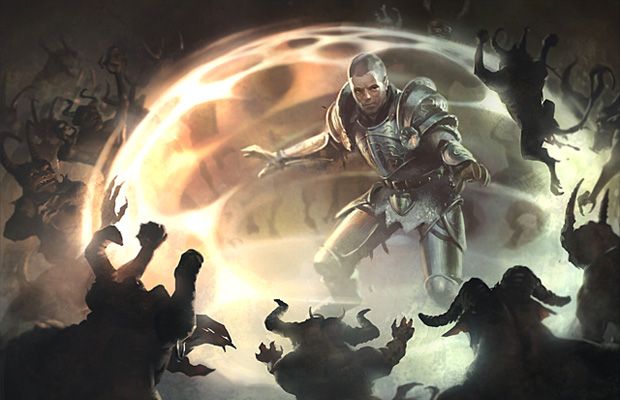
Artemis! Every six months or so, my co-worker and compatriot Jay runs a gaming mini-convention out of his home he humbly dubbed "JayCon". The latest edition of the get-together just wrapped up yesterday, and good times were had by all. It's a great opportunity to introduce (and be introduced to) new games, as well as playing old favorites. So, without further ado, here's a rundown on everything I played over the weekend, as far as I can remember. I started off the weekend by finally playing
Dominion for the first time. It is often hailed as one of the best deck-building games ever, and I can see why. Players, in their roles as medieval land-owners, take it in turns to acquire cards for their decks that increase their purchasing power, grant the more victory points, or allow them to draw additional cards or take additional actions. A fair amount of strategy and forethought is involved, especially given the nature of the starting communal stacks of cards. The game is set up in such a way that, with the expansions, it is extremely unlikely you will ever play the same game twice. It's an excellent game. I played a bit of
Crokinole next. I'd played it a couple times before the weekend, after seeing it as the final event of the Omegathon at PAX East 2012. Played on a circular board with checker-like discs and incorporating elements of shuffleboard and curling in miniature, Crokinole is one of those 'simple to learn, difficult to master' games. It's simple in that its challenges don't come from over-complicated rules but the ability of the players to position themselves properly; the difficulty is in pulling off said positioning. For most of the weekend, part of the house was dedicated to the playing of
Artemis, the spaceship bridge simulation program. Up to five people sat around the room in front of laptops, each claiming a different station on the bridge of the spaceship: Helm, Science, Weapons, Engineering, and Communications. The last person, the Captain, does not get a laptop of his or her own; instead, they see what is currently on the viewscreen (the monitor slaved to the server computer for the simulation). The Captain must call out to the other members of the crew for status reports, issuing commands, and so on, while each crew member must work with their specialized consoles to operate the ship. It's about as close to actually being on
Star Trek as any of us are likely to get. Saturday started off with me finally playing
Lords of Waterdeep for the first time since PAX. A "worker placement" game with heavy D&D flavor, the Forgotten Realms city of Waterdeep serves as the backdrop for the machinations of her various lords, who conscript heroes to complete quests on their behalf. While the game makes for interesting competition and features high-quality components and a fantastic use of the D&D universe, there's something to be said for having little wooden cubes slay dragons when one could be doing the slaying themselves. There's also the fact that Mandatory Quests are terrible. But it's still a good game we all enjoyed playing. Over the weekend I had the opportunity to play and introduce new players to
NetRunner. The game I
highly enjoyed playing years ago has returned as a Living Card Game (read: no randomized packs but major collectible elements) and has all of the asymmetrical gameplay, tension, and feast-or-famine hair-pulling frustration I remember. The core game is not terribly imbalanced, but definitely needs to be tweaked if one wants to build any sort of competitive or truly interesting deck. It also helps to not ditch cards that let you search through your deck, but these are the things we learn as we play. I do wish more people in my area played it, as it's challenging and fun and flavorful, three things I demand from games I want to enjoy. Hence my new love for
Escape, a real-time game of dice rolling, tile laying, and hearkening back to the classic adventures of Indiana Jones. As explorers trapped in the heart of an ancient temple, players roll dice to move into new rooms, solve puzzles to ease the requirements to escape, and bail each other out of trouble. The catch is that as this is going on, a soundtrack is playing, and as the soundtrack continues the stakes get higher and higher. Only those explorers who reach the exit and defeat the final challenge before time runs out survive. With everybody rolling at once, communication and focus is key, leading to a tense, challenging, and extremely atmospheric experience. I very much enjoyed it. I assisted Jay in playtesting a game I won't mention here as it's in development and everything. The other game I introduced new players to over the weekend was
Chrononauts. It had been a while since the last time I played this card game of time shenanigans, and doing things like rescuing the Lusitania and assassinating Hitler are as fun as ever. We even had a player cause World War 3! The fact that the humor remains intact and the gameplay is easy to pick up are testaments to the solid design. Saturday night ended with a long game of
Fiasco, and some of the most fun I've had role-playing in quite some time. Each of the five players used the charts in the rules to establish relationships, needs, locations, and objects of interest between their characters. As each player chose a die to establish something, ideas flowed organically into the setup for the story. Once everything was laid out, we began interacting as characters in scenes. We used the playset called
The Ice, and by design or collective whim, things quickly turned from a
Fargo-like setup of capers and criminals to something more in line with John Carpenter's
The Thing. It kept us up to the wee hours of the morning, but it was an absolute blast. Sunday morning reintroduced me to
Carolus Magnus, a German game of medieval territory control. Players used 'Paladins' (wooden cubes) to establish influence over the tiles spread out at random in a circle on the table, and where a player holds the greatest influence, they build castles. As more castles are built, territory is consolidated, creating larger 'islands' of tiles that are increasingly difficult for other players to usurp. It's Jay's favorite 3-player game, and the reasons seem obvious. I was introduced to an interesting little coffee-break card game called
Love Letter. With a very small communal deck of around 20 cards, players compare and contrast their cards to discover who gets to deliver their letter to the prince or princess that's captured the hearts and minds of the kingdom. It's a very quick game, similar to other coffee-break games like Zombie Dice or Tsuro due to its simplicity. The big game of Sunday was
Navigador. A deep and extensive game of trade in the age of exploration, players must strike a balance between pushing their fleets into uncharted waters, establishing colonies, manipulating the market and its goods, and conscripting new workers to build up resources. The system of the rondel is very interesting and rewards careful planning, and players can engage in wildly diverse strategies while remaining competitive. I never had more than three boats on the board at any given time, which may have been a hinderance, but the gap between my score (the lowest) and the winning player's was very narrow at the end. It was rewarding, if long, but not quite as involved or time-consuming as Merchants & Marauders. Last but certainly not least, I played
Legacy: Gears of Time. Being a sucker for both time-travel and
Civilization-style tech trees, this one looked right up my alley. As a 'time architect', each player journeys into the past to exert influence over technology, from basic tools, writing, and sanitation, all the way up to space travel and the Internet. Things like turn order, which era to place a technology into, and ensuring your big techs don't get paradox'd out of existence are extremely important. There are also Fate cards that can yield even more canny stratagems or, if you're on the receiving end, hold massive dicking-over potential. Still, it's a game I would definitely play again. All in all it was a fantastic and relaxing weekend. If you want to know more about Jay, his various projects, and his brilliant opinions on gaming in general, follow him
here. You can find his Magic-related site, Wizard's Familiar,
here, along with
the attached Twitter account and his frequent postings on
Goblin Artisans. As for me, it's back to the grind, provided I can stop thinking about games for five minutes. This is unlikely.
Blue Ink Alchemy











